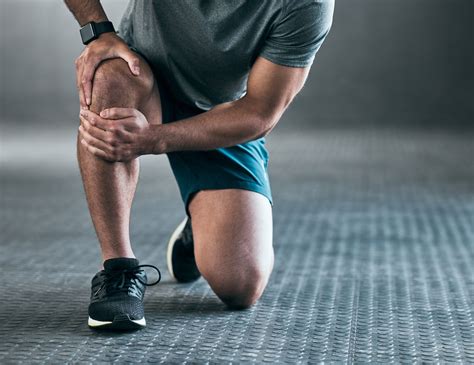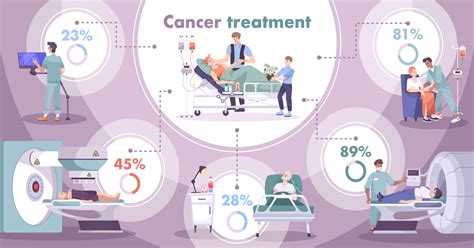Intro
Muscle aches without fever can be caused by overuse, strain or underlying conditions like fibromyalgia, triggering soreness, stiffness and pain, requiring rest, stretching and medical attention for relief and management.
Muscle aches can be a debilitating and frustrating experience, especially when they occur without any clear explanation, such as the absence of fever. Fever is often a hallmark of infection, and its absence can sometimes make diagnosis more challenging. However, muscle aches without fever can be caused by a variety of factors, ranging from physical overexertion to underlying medical conditions. Understanding the potential causes, recognizing the symptoms, and knowing how to manage these aches are crucial for individuals seeking relief.
Muscle aches, or myalgias, are a common complaint that can affect anyone, regardless of age or health status. They can be localized to a specific area or widespread, affecting multiple muscle groups. The intensity of the pain can vary significantly, from mild discomfort to severe pain that interferes with daily activities. When fever is absent, it might indicate that the cause is not directly related to an infectious process, although this is not always the case. The absence of fever does not necessarily simplify the diagnosis, as many conditions can cause muscle aches without fever.
The human body is complex, and muscle aches can result from a multitude of causes. For instance, overuse or strain of muscles, which is common in athletes or individuals who engage in strenuous physical activity without proper warm-up or cool-down exercises, can lead to muscle soreness. Additionally, medical conditions such as fibromyalgia, a chronic condition characterized by widespread muscle pain, or polymyalgia rheumatica, which causes muscle pain and stiffness, especially in the shoulders and hips, can also be responsible. Other factors, including certain medications, poor posture, and nutritional deficiencies (like vitamin D deficiency), can contribute to muscle aches without fever.
Muscle Aches Causes and Mechanisms

Physical Factors
Physical factors are among the most common causes of muscle aches without fever. These include: - Overuse injuries: Engaging in new or strenuous activities without gradual progression can lead to muscle strain. - Poor posture: Maintaining poor posture for extended periods can lead to muscle fatigue and strain. - Muscle imbalances: When some muscles are significantly stronger than others, it can lead to inefficient movement patterns and strain on certain muscles.Medical Conditions
Several medical conditions can cause muscle aches, including: - Fibromyalgia: Characterized by widespread muscle pain, fatigue, and tender points. - Polymyalgia Rheumatica: Inflammation of the muscles, particularly affecting the shoulders and hips. - Hypothyroidism: Underactive thyroid gland can lead to muscle aches, among other symptoms. - Chronic Fatigue Syndrome: Persistent fatigue that is not relieved by rest, often accompanied by muscle pain.Diagnosis and Assessment

Medical History
A detailed medical history is crucial and includes questions about: - Recent physical activities or changes in activity level. - Presence of any systemic symptoms such as fatigue, weight loss, or difficulty sleeping. - History of previous injuries or conditions that could contribute to current symptoms.Physical Examination
The physical examination focuses on: - Assessing muscle strength and looking for signs of atrophy. - Checking for tender points or areas of pain. - Evaluating posture and movement patterns.Treatment and Management

Self-Care Measures
Self-care measures can provide significant relief and include: - Resting the affected area to avoid further strain. - Applying ice or heat to reduce pain and inflammation. - Engaging in gentle stretching exercises to improve flexibility and reduce muscle tension. - Maintaining a healthy diet and staying hydrated to support muscle health.Professional Interventions
Professional interventions might be necessary for persistent or severe muscle aches and can include: - Physical therapy to improve muscle strength, flexibility, and posture. - Medications prescribed by a healthcare provider to manage pain, inflammation, or underlying conditions. - Alternative therapies such as massage, acupuncture, or chiropractic care for some individuals.Prevention Strategies

Lifestyle Modifications
Key lifestyle modifications include: - Engaging in regular exercise to improve muscle strength and endurance. - Maintaining a balanced diet rich in nutrients necessary for muscle health. - Practicing stress-reducing techniques such as meditation or yoga to manage stress.Preventive Measures
Preventive measures are also crucial and include: - Gradually increasing intensity and duration of physical activities. - Using proper lifting techniques to avoid straining back and other muscles. - Taking regular breaks during prolonged activities to stretch and rest.Nutritional Considerations

Essential Nutrients
Essential nutrients for muscle health include: - Protein: Crucial for muscle repair and growth. - Vitamin D: Important for muscle function and recovery. - Magnesium: Plays a role in muscle contraction and relaxation.Dietary Recommendations
Dietary recommendations for preventing muscle aches include: - Eating a balanced diet that includes a variety of whole foods. - Staying hydrated by drinking plenty of water. - Avoiding excessive intake of processed foods and sugars.Conclusion and Future Directions

As we move forward, it's essential to prioritize muscle health through a combination of regular physical activity, balanced nutrition, and stress management. By taking proactive steps towards preventing muscle aches and addressing them promptly when they occur, individuals can reduce their impact and maintain an active, healthy lifestyle. Whether through self-care measures, professional interventions, or a combination of both, managing muscle aches is within reach, and with the right approach, relief from discomfort and a return to full function are achievable goals.
We invite you to share your experiences with muscle aches, ask questions, or provide insights that could help others in managing their symptoms. Your engagement and feedback are invaluable in creating a supportive community that prioritizes health and wellness. Together, let's explore the complexities of muscle health and work towards a future where everyone can enjoy an active, pain-free life.
What are the most common causes of muscle aches without fever?
+Muscle aches without fever can be caused by physical overexertion, medical conditions such as fibromyalgia or polymyalgia rheumatica, and lifestyle factors including poor posture, lack of physical activity, and nutritional deficiencies.
How can I manage muscle aches at home?
+Self-care measures such as rest, ice, compression, and elevation (RICE), over-the-counter pain relievers, gentle stretching, and maintaining a healthy diet and hydration can help manage muscle aches.
When should I seek medical attention for muscle aches?
+Seek medical attention if muscle aches are severe, persistent, or accompanied by other concerning symptoms such as difficulty moving, fever, or swelling, as these could indicate an underlying condition that requires professional diagnosis and treatment.
